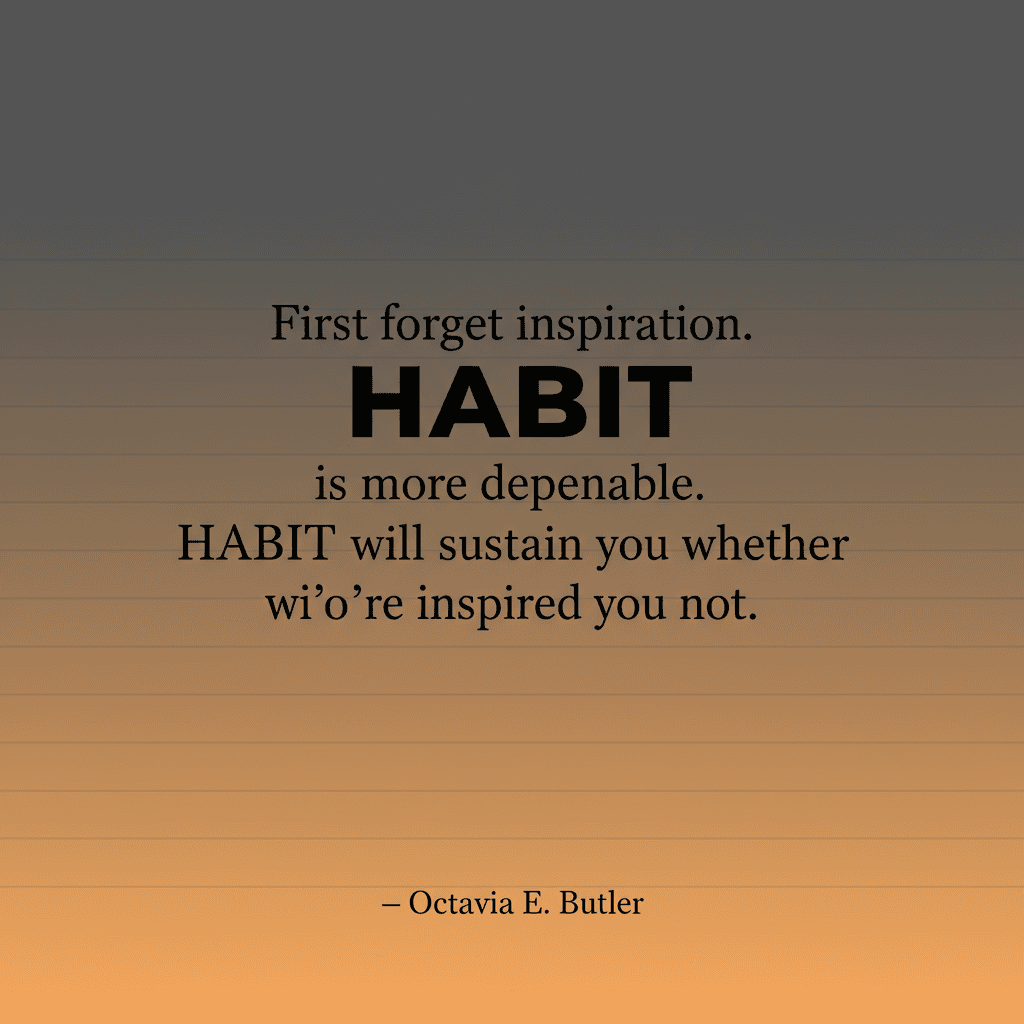Octavia E. Butler
Octavia E. Butler (1947–2006) was an influential American science fiction author known for exploring race, gender, and power in works such as Kindred and the Parable novels. She received a MacArthur Fellowship and is recognized for blending speculative imagination with rigorous social critique.
Quotes by Octavia E. Butler
Quotes: 4

Why Habits Outlast Inspiration in Creative Work
Beyond anecdote, neuroscience and psychology show why habit sustains effort. Studies from Ann Graybiel’s lab at MIT (c. 2005) observed chunking in the basal ganglia as behaviors become automatic, shifting control from deliberative systems to efficient motor loops. Charles Duhigg’s The Power of Habit (2012) popularized the cue-routine-reward cycle, while Peter Gollwitzer’s implementation intentions (1999) demonstrated that if-then plans (“If it’s 6 a.m., then I draft 200 words”) dramatically raise follow-through. In this light, habit is not stoic heroism; it is cognitive economy, freeing scarce attention for the hard problems inside the work. [...]
Created on: 11/1/2025

All We Touch: Earthseed’s Truth of Change
Finally, living Earthseed means rehearsing adaptability. Scenario planning—popularized by Royal Dutch Shell in the 1970s—treats multiple futures as prototypes to practice against, turning surprise into preparedness. Iterative design cycles translate the same idea to daily life: act in small, learn, iterate. Mutual aid networks, as Butler’s communities model, distribute capacity so that no single failure dooms the whole. Even personal habits can align: journaling like Olamina, running postmortems after projects, and cultivating skills that travel across contexts. By ritualizing feedback and learning, we do more than endure change—we co-author it, accepting that in shaping tomorrow we are, unavoidably, shaping ourselves. [...]
Created on: 8/10/2025

The Reciprocity of Change in Every Touch
Beyond relationships, creation itself is reciprocal. Richard Sennett’s The Craftsman (2008) argues that working with materials cultivates character—patience, care, humility. Similarly, Mihaly Csikszentmihalyi’s Flow (1990) documents how deep engagement with a task shapes attention and desire. A potter begins to see time in drying clay and weather forecasts; soon, daily life reorganizes around kilns and glazes. The bowl is changed by the hand, and the hand—along with the maker’s habits and values—is changed by the bowl. Thus, choosing a craft is also choosing a self that the craft will craft in return. [...]
Created on: 8/10/2025

Bold Pursuit: Turning Dreams Into Reality
Moreover, acts of courage inspire others to pursue their own paths boldly. When someone dares greatly, it creates a ripple effect, emboldening friends, communities, and even entire movements. Butler herself has inspired generations of writers—her willingness to imagine and act encouraged others to bring their unique visions to life, reshaping what was thought possible in speculative fiction. [...]
Created on: 8/1/2025